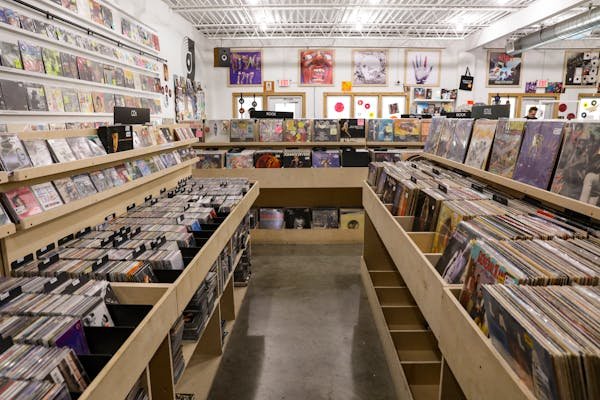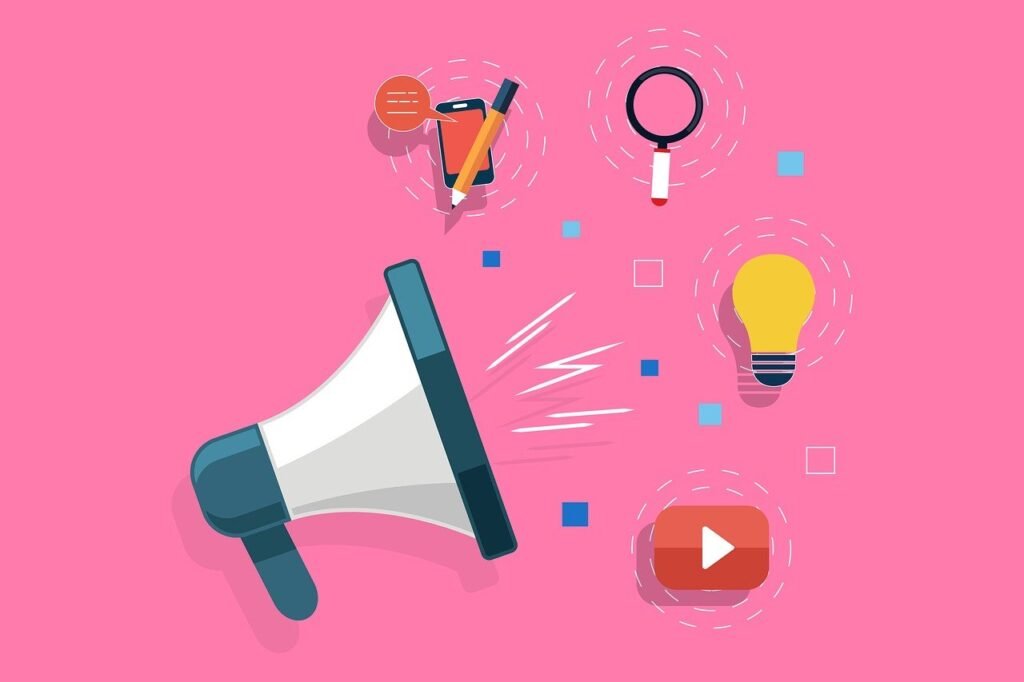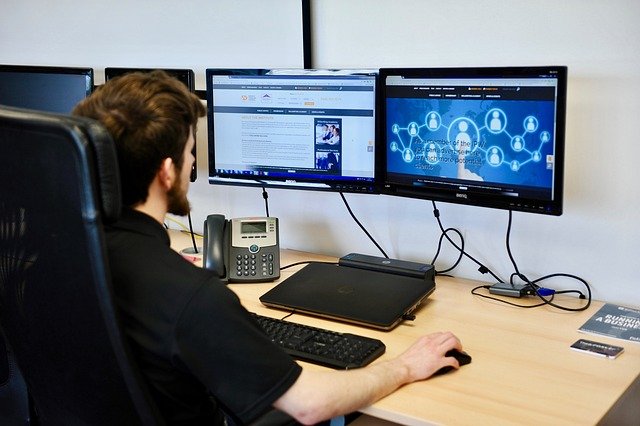In today’s music industry, talent alone is not enough to succeed. Effective marketing is crucial to getting your music heard and building a fan base. Whether you’re an independent artist or part of a band, knowing how to promote your music can make all the difference. This article will explore detailed, actionable strategies for marketing your music effectively. From leveraging social media to building a strong online presence, these tactics will help you reach a wider audience and grow your fanbase.
Understanding Your Audience
Conducting Audience Research
To market your music effectively, you must conduct thorough audience research. Start by analyzing your current fanbase using tools like Google Analytics, Spotify for Artists, and social media insights. These tools provide demographic data, such as age, gender, and location, as well as information on listening habits and engagement.
Use this data to create detailed audience personas that represent your ideal fans. These personas should include information about their interests, behaviors, and preferences. Understanding who your fans are and what they like will help you create targeted marketing strategies that resonate with them.
Engaging in Direct Conversations
One of the best ways to understand your audience is by engaging in direct conversations. Use social media platforms, email newsletters, and live events to interact with your fans. Ask them questions about their favorite songs, what they like about your music, and what they want to see more of.
Create polls and surveys to gather feedback on upcoming releases, merchandise, or concert locations. These interactions not only provide valuable insights but also make your fans feel valued and heard. Direct conversations can reveal trends and preferences that data alone might miss, giving you a deeper understanding of your audience.
Analyzing Competitors
Analyzing your competitors can provide insights into your target audience. Identify successful artists within your genre and study their marketing strategies. Look at their social media engagement, the type of content they share, and how they interact with their fans.
Pay attention to the platforms they use and the promotional tactics that seem to work best for them. This analysis can help you identify gaps in your own strategy and inspire new ideas. Additionally, understanding what works for your competitors can help you attract a similar audience and tailor your marketing efforts more effectively.
Utilizing Audience Segmentation
Segmenting your audience allows you to tailor your marketing messages to specific groups within your fanbase. Divide your audience into segments based on factors like age, location, and engagement level. For example, you might have a segment for loyal fans who attend every concert and another for casual listeners who engage mostly online.
Create targeted content and offers for each segment. For your loyal fans, you could offer exclusive early access to new releases or special VIP tickets for upcoming shows. For casual listeners, focus on engaging content that encourages deeper interaction, like behind-the-scenes videos or free downloads. Audience segmentation helps you deliver more personalized and relevant marketing messages.
Leveraging Data Analytics
Data analytics can provide deeper insights into your audience’s behaviors and preferences. Use advanced analytics tools to track how your fans interact with your music across different platforms. Monitor metrics like song plays, video views, social media engagement, and website traffic.
Analyze patterns to identify which songs or types of content perform best and at what times. For example, if you notice that your acoustic sessions receive higher engagement on weekends, schedule more of these posts accordingly. Data analytics helps you make informed decisions and optimize your marketing strategies to better meet your audience’s needs.
Understanding Psychographics
In addition to demographics, consider the psychographics of your audience. Psychographics delve into the attitudes, values, lifestyles, and motivations of your fans. Understanding these aspects can help you connect with your audience on a deeper level. For instance, if your fans value authenticity and personal connection, share more personal stories and behind-the-scenes content.
If they are environmentally conscious, highlight your sustainable practices in your marketing efforts. Psychographics provide a richer understanding of your audience, enabling you to create more meaningful and impactful marketing campaigns.
Creating Interactive Experiences
Interactive experiences can help you engage with your audience and understand them better. Host live Q&A sessions, interactive concerts, or virtual meet-and-greets where fans can ask questions and share their thoughts. Use platforms like Instagram Live, Facebook Live, or Zoom to facilitate these interactions.
These events provide real-time feedback and allow you to gauge your audience’s reactions and preferences. Interactive experiences create a sense of community and make your fans feel more connected to you and your music.
Monitoring Social Media Conversations
Social media is a goldmine for understanding your audience. Monitor conversations about your music, genre, and related topics using social listening tools. Pay attention to what fans are saying about your songs, performances, and overall brand. Identify common themes, questions, and concerns that arise.
Engage with these conversations by responding to comments, answering questions, and joining discussions. Social media monitoring helps you stay attuned to your audience’s sentiments and keeps you informed about trends and preferences.
Personalizing Your Marketing
Personalization is key to effective marketing. Use the insights gathered from your audience research to create personalized marketing messages. Address fans by their names in email newsletters, recommend songs based on their listening history, and create custom playlists for different segments of your audience.
Personalization makes your fans feel special and valued, increasing their loyalty and engagement. Tailor your marketing efforts to reflect the unique tastes and preferences of your audience, making your music marketing more effective and impactful.
Building a Community
Building a community around your music can deepen your connection with your audience. Create online forums, fan clubs, or social media groups where fans can interact with each other and with you. Encourage discussions, share exclusive content, and host virtual events to keep the community active and engaged.
A strong community fosters loyalty and creates a supportive environment for your fans. It also provides a space for you to gather feedback and insights directly from your most dedicated supporters.
Building a Strong Online Presence

Enhancing Your Website for Maximum Impact
Your website is the central hub for all your online activities, so it must be well-designed and user-friendly. Start by ensuring your website loads quickly and is optimized for mobile devices, as many users will access it from their smartphones.
Implement a clean and intuitive navigation structure, making it easy for visitors to find what they’re looking for. Create dedicated pages for your music, videos, upcoming events, and a blog where you can share news and insights.
Add a mailing list sign-up form to capture visitor information and build your email list. Offer a free download or exclusive content as an incentive for signing up. Use a professional email marketing service to manage your list and send regular updates to your subscribers. Include social media buttons to make it easy for visitors to follow you on various platforms. Regularly update your website with fresh content to keep visitors coming back.
Leveraging SEO for Increased Visibility
Search engine optimization (SEO) is crucial for driving organic traffic to your website. Start by conducting keyword research to identify terms your potential fans are searching for.
Use tools like Google Keyword Planner and Ahrefs to find relevant keywords with high search volume and low competition. Incorporate these keywords naturally into your website content, including page titles, meta descriptions, headers, and body text.
Create high-quality blog posts that answer common questions or provide valuable information related to your music and industry. For example, you could write articles about your songwriting process, the inspiration behind your songs, or tips for aspiring musicians.
Share these posts on your social media channels and encourage your fans to share them as well. High-quality content not only improves your SEO but also establishes you as an authority in your field.
Utilizing Email Marketing
Email marketing is a powerful tool for building and maintaining a strong connection with your audience. Use your email list to share exclusive content, announce new releases, and promote upcoming events. Personalize your emails to make them more engaging; use the recipient’s name and tailor the content to their preferences based on their previous interactions with your music.
Segment your email list to send targeted messages to different groups of fans. For example, you could create separate segments for fans who have attended your concerts, those who have purchased your music, and new subscribers.
This allows you to send more relevant content and increase engagement. Use compelling subject lines and high-quality visuals to capture your audience’s attention and encourage them to open and read your emails.
Creating Engaging Content for Social Media
Social media is a powerful platform for connecting with your fans and promoting your music. Create a content calendar to plan and schedule your posts in advance. Share a mix of content, including music releases, live performance videos, behind-the-scenes footage, and personal updates. Use high-quality images and videos to make your posts visually appealing and engaging.
Engage with your audience by responding to comments, messages, and mentions. Use social media stories to share real-time updates and give fans a glimpse into your daily life. Run contests and giveaways to encourage interaction and increase your reach.
Collaborate with other artists and influencers to expand your audience and reach new potential fans. Analyze your social media metrics regularly to see which types of content perform best and adjust your strategy accordingly.
Harnessing the Power of Video Content
Video content is highly engaging and can help you connect with your audience on a deeper level. Create a YouTube channel and upload a variety of videos, including music videos, live performances, lyric videos, and vlogs. Optimize your videos with descriptive titles, relevant tags, and engaging thumbnails to attract more viewers.
Use live streaming platforms like YouTube Live, Facebook Live, and Instagram Live to interact with your fans in real time. Host live Q&A sessions, virtual concerts, and behind-the-scenes tours to keep your audience engaged.
Promote your live streams in advance to build anticipation and ensure a large audience tunes in. After the live stream, share highlights and clips on your social media channels to reach even more people.
Building a Strong Brand Identity
Your brand identity is how your audience perceives you and your music. It encompasses your visual aesthetics, tone of voice, and overall image. Develop a consistent brand identity that reflects your unique style and personality. This includes creating a logo, choosing a color scheme, and defining your visual style for photos and videos.
Use your brand identity consistently across all your online platforms, including your website, social media profiles, and email newsletters. This helps create a cohesive and recognizable image that makes you stand out from other artists. Regularly review and update your brand identity to ensure it remains fresh and relevant.
Engaging with Online Communities
Engaging with online communities can help you reach new audiences and build a loyal fanbase. Join forums, groups, and communities related to your genre or the music industry. Participate in discussions, share your music, and offer valuable insights and advice. Be genuine and avoid spamming these communities with promotional content.
Create your own online community, such as a Facebook group or a Discord server, where fans can interact with you and each other. Share exclusive content, host virtual events, and encourage discussions to keep the community active and engaged. Building a strong online community fosters loyalty and creates a supportive environment for your fans.
Leveraging Paid Advertising
Paid advertising can help you reach a broader audience and promote your music more effectively. Use platforms like Facebook Ads, Instagram Ads, and Google Ads to create targeted ad campaigns. Define your target audience based on factors like age, location, interests, and online behavior. Create compelling ad creatives that capture attention and drive action.
Experiment with different types of ads, such as video ads, carousel ads, and sponsored posts, to see what works best for your audience. Monitor your ad performance regularly and adjust your strategy based on the results. Paid advertising can be a powerful tool for increasing your visibility and attracting new fans.
Collaborating with Influencers and Bloggers
Collaborating with influencers and bloggers can help you reach new audiences and gain credibility. Identify influencers and bloggers who align with your brand and have a strong following in your genre. Reach out to them with a personalized pitch, offering to collaborate on content such as interviews, reviews, or sponsored posts.
Provide influencers and bloggers with exclusive access to your music, behind-the-scenes content, and other perks to incentivize them to promote your music. Collaborations with influencers and bloggers can increase your reach, build your credibility, and attract new fans.
Content Creation and Distribution
Developing a Content Calendar
A content calendar is essential for staying organized and consistent with your content creation and distribution. Plan out your content in advance, including release dates for new music, videos, blog posts, and social media updates. Use tools like Google Calendar, Trello, or Airtable to schedule your content and keep track of deadlines.
This approach ensures that you always have fresh content to share and helps you manage your workload effectively. Regularly review and adjust your calendar based on the performance of your content and feedback from your audience.
Crafting Engaging Stories
Storytelling is a powerful way to connect with your audience on an emotional level. Share stories behind your songs, personal experiences, and the journey of your music career. Use various formats, such as blog posts, videos, and social media updates, to tell these stories.
For example, create a video series where you discuss the inspiration behind each track on your latest album. This type of content adds depth to your music and makes your fans feel more connected to you. Authentic storytelling can differentiate you from other artists and build a loyal fanbase.
Utilizing Long-Form Content
Long-form content, such as in-depth blog posts, eBooks, and podcasts, can provide significant value to your audience and improve your SEO. Write detailed articles about your music-making process, industry trends, and advice for aspiring musicians.
Create an eBook that compiles your insights and experiences, and offer it as a free download in exchange for email sign-ups. Launch a podcast where you interview other musicians, industry experts, and fans. Long-form content establishes you as an authority in your field and keeps your audience engaged with valuable information.

Hosting Virtual Events
Virtual events are a great way to engage with your audience and promote your music. Host virtual concerts, Q&A sessions, and behind-the-scenes tours. Use platforms like Zoom, Facebook Live, and Instagram Live to stream these events.
Promote your virtual events through your website, social media, and email newsletters to maximize attendance. Encourage interaction by taking requests, answering questions, and giving shout-outs to viewers. Virtual events provide an opportunity to connect with fans in real-time and create memorable experiences.
Creating Exclusive Content for Subscribers
Reward your most loyal fans by offering exclusive content through a subscription model. Platforms like Patreon allow you to create different membership tiers, each offering unique benefits such as early access to new music, behind-the-scenes content, personalized shout-outs, and exclusive merchandise.
Promote your subscription model on your website and social media channels, highlighting the value and exclusive perks subscribers will receive. This approach not only provides a steady income stream but also strengthens your relationship with your core fanbase.
Leveraging User-Generated Content
Encourage your fans to create and share their own content related to your music. This can include covers of your songs, fan art, and videos of them attending your concerts. Create a branded hashtag for fans to use when sharing their content on social media.
Feature the best submissions on your website, social media profiles, and during live events. User-generated content not only promotes your music but also fosters a sense of community and involvement among your fans. It provides social proof and can attract new listeners through authentic, fan-created content.
Optimizing Content for Different Platforms
Different platforms have unique characteristics and audiences, so it’s important to tailor your content accordingly. For example, Instagram is ideal for visually appealing photos and short videos, while YouTube is better suited for longer-form video content.
Twitter is great for quick updates and engaging in conversations, while Facebook offers a mix of content types and community engagement. Optimize your content for each platform by considering the format, length, and style that performs best. Cross-promote your content across platforms to increase reach and engagement.
Investing in High-Quality Visuals
High-quality visuals are crucial for capturing attention and conveying professionalism. Invest in good photography and videography to create visually appealing content. Use professional lighting, backdrops, and editing software to enhance the quality of your photos and videos.
High-quality visuals can make a significant difference in how your content is perceived and shared. They help establish a strong brand identity and make your content more engaging and shareable.
Experimenting with New Content Formats
Stay ahead of the curve by experimenting with new content formats and technologies. For example, try creating 360-degree videos that provide an immersive experience, or use virtual reality (VR) to create interactive music videos.
Experiment with augmented reality (AR) filters on social media to engage your audience in fun and innovative ways. Keep an eye on emerging trends and be willing to adapt and try new approaches. Experimenting with new content formats can set you apart from other artists and keep your audience engaged and excited.
Distributing Content Across Multiple Channels
Maximize the reach of your content by distributing it across multiple channels. Share your music on streaming platforms like Spotify, Apple Music, and SoundCloud. Upload videos to YouTube, Facebook, and Instagram. Post photos and updates on Twitter, TikTok, and Snapchat.
Use email marketing to send exclusive content directly to your subscribers. The more channels you use, the more opportunities you have to reach different segments of your audience. Consistent and widespread distribution increases the chances of your content being discovered and shared.
Monitoring and Analyzing Performance
Regularly monitor and analyze the performance of your content to understand what works and what doesn’t. Use analytics tools provided by social media platforms, streaming services, and your website to track metrics such as views, likes, shares, comments, and conversions.
Identify patterns and trends in the data to see which types of content resonate most with your audience. Use these insights to refine your content strategy and make data-driven decisions. Continually optimizing your content based on performance metrics ensures that your marketing efforts are effective and aligned with your audience’s preferences.
Networking and Collaborations
Attending Industry Conferences and Festivals
Industry conferences and festivals are prime opportunities for networking and collaboration. Attend events like South by Southwest (SXSW), MIDEM, and local music festivals to meet other musicians, producers, managers, and industry professionals. Prepare by researching attendees and scheduling meetings in advance.
Bring business cards, press kits, and promotional materials to share. Engage in workshops, panel discussions, and networking sessions to gain insights and build relationships. Follow up with contacts after the event to keep the conversation going and explore potential collaborations.
Joining Professional Organizations
Joining professional organizations can provide valuable networking opportunities and industry resources. Organizations like the Recording Academy, American Society of Composers, Authors, and Publishers (ASCAP), and local musician unions offer events, workshops, and networking sessions.
Participate actively in these organizations to meet like-minded individuals and industry experts. Use these connections to gain advice, find collaboration opportunities, and stay informed about industry trends and best practices. Membership in professional organizations can enhance your credibility and provide access to valuable resources and support.
Leveraging Online Networking Platforms
Online networking platforms like LinkedIn, Music Gateway, and SoundBetter are excellent tools for connecting with industry professionals. Create a detailed profile that highlights your skills, achievements, and goals. Join relevant groups and participate in discussions to share your expertise and learn from others.
Reach out to potential collaborators with personalized messages that express your interest and how you can mutually benefit from working together. Online networking can help you connect with professionals beyond your local area and explore international collaboration opportunities.
Collaborating with Producers and Songwriters
Collaborating with producers and songwriters can elevate your music and expand your creative horizons. Reach out to producers and songwriters whose work you admire and propose a collaboration. Be clear about your vision, goals, and what you bring to the table.
Collaborations can result in co-writing sessions, joint productions, and even full album projects. Working with experienced producers and songwriters can improve the quality of your music, introduce you to new audiences, and provide valuable learning experiences.
Engaging with Local Music Scenes
Engaging with your local music scene is crucial for building a strong support network. Attend local gigs, open mics, and music events to meet other musicians and industry professionals. Join local music groups and associations to stay connected and informed about local opportunities.
Offer to collaborate with local artists on live performances, recordings, and promotional events. Supporting your local music scene fosters a sense of community and can lead to mutually beneficial collaborations and opportunities.
Hosting Collaborative Events
Hosting collaborative events can bring together musicians, industry professionals, and fans. Organize events like songwriting camps, producer showcases, or joint concerts with other artists. These events provide a platform for collaboration, networking, and exposure.
Promote the events through your social media channels, email newsletters, and local media outlets. Document the events with photos and videos to share online and create lasting memories. Hosting collaborative events demonstrates your commitment to fostering community and can lead to new opportunities and partnerships.
Utilizing Social Media for Networking
Social media platforms like Instagram, Twitter, and Facebook are powerful tools for networking and collaboration. Follow and engage with other musicians, producers, and industry professionals by liking, commenting, and sharing their content. Participate in social media challenges, collaborations, and live sessions to increase your visibility and connect with new audiences.
Use direct messaging to reach out to potential collaborators with personalized messages that highlight your interest and how you can work together. Social media networking can lead to organic collaborations and valuable connections.
Building a Collaborative Network
Building a collaborative network involves cultivating long-term relationships with other musicians and industry professionals. Focus on creating genuine connections based on mutual respect and shared interests. Offer your support and assistance to others, whether it’s through promotion, advice, or collaboration.
Attend regular meet-ups, networking events, and industry gatherings to stay connected and strengthen your relationships. A strong collaborative network provides a support system, opens doors to new opportunities, and enhances your music career.
Collaborating Across Genres
Collaborating with artists from different genres can bring fresh perspectives and innovation to your music. Reach out to musicians in genres outside your own and propose cross-genre collaborations. This can result in unique and exciting music that appeals to a broader audience.
For example, if you’re a pop artist, consider collaborating with a hip-hop producer or a classical musician. Cross-genre collaborations can expand your creative horizons, introduce you to new audiences, and create buzz around your music.
Participating in Online Collaborations

Online collaborations have become increasingly popular and accessible. Use platforms like Kompoz, Soundtrap, and BandLab to collaborate with musicians from around the world. These platforms allow you to share tracks, edit, and produce music together in real-time, regardless of location.
Participate in online collaboration projects and challenges to connect with other musicians and showcase your skills. Online collaborations provide flexibility, convenience, and the opportunity to work with diverse talents.
Leveraging Influencer Collaborations
Collaborating with influencers can amplify your reach and introduce your music to new audiences. Identify influencers who align with your brand and have a significant following in your target audience. Propose collaborations such as influencer takeovers, sponsored posts, or co-created content.
For example, an influencer could create a dance video using your music or share behind-the-scenes content from your studio sessions. Influencer collaborations can increase your visibility, build your credibility, and attract new fans.
Conclusion
Marketing your music effectively involves a multifaceted approach that combines understanding your audience, building a strong online presence, creating engaging content, and leveraging strategic networking and collaborations. By implementing these strategies, you can significantly increase your visibility, attract a loyal fanbase, and advance your music career.
Understanding your audience is fundamental. Conduct thorough research, engage in direct conversations, and analyze competitors to gather valuable insights. Use this information to create personalized marketing messages and build a deeper connection with your fans. Segment your audience to deliver targeted content that resonates with their preferences and enhances their engagement.
Read Next:
- Effective Marketing Strategies for Car Dealers
- Back-to-School Marketing Ideas for September
- How to Successfully Market Your Book
- Compassionate Marketing Strategies for Assisted Living
- Thoughtful Marketing Gift Ideas for Small Businesses





















Comments are closed.